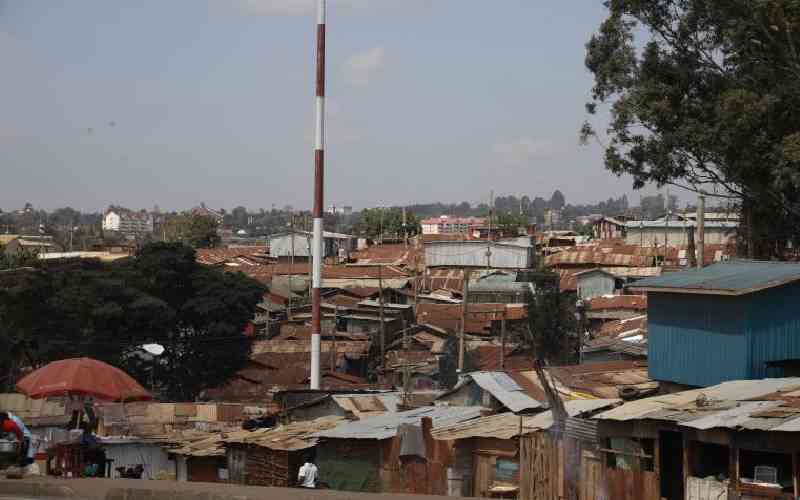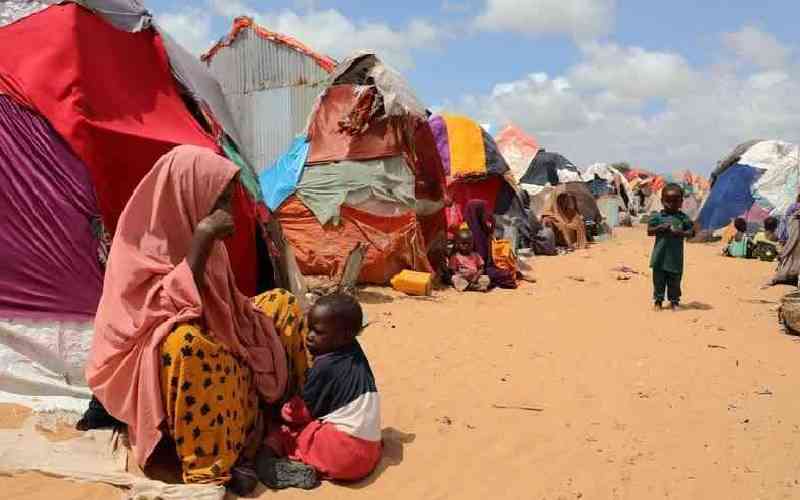A month after six central African nations scrapped visa requirements for their citizens, the long lines at the Kye-Ossi border crossing in southern Cameroon show the challenges facing efforts to boost trade on the continent.
Multilateral institutions like the World Bank say intra-African trade is a key to unlocking the growth potential of the continent's 1 billion consumers. But corruption, rampant bureaucracy and lack of infrastructure have long hampered this.
In bustling Kye-Ossi, 275 km (170 miles) south of the capital Yaounde, baffled traders were told visas were still required despite the announcement in early May by the leaders of Cameroon, Central Africa Republic, Chad, Congo Republic, Equatorial Guinea, and Gabon.
The town of 45,000 people lives on trade in contraband goods with neighboring Gabon and Equatorial Guinea. Cameroon, the region's breadbasket, exports food while wine and spirits come back across the border from Equatorial Guinea, almost none of it paying duty, a customs source said.
Desire Bohou, who runs a cross-border transport service, said police were willing to turn a blind eye and allow traders access to Equatorial Guinea's border town of Ebebiyin in return for a pay-off.
But if traders wanted to go beyond Ebebiyin, they had to obtain a visa, he said.
"Nothing has changed on the side of Equatorial Guinea because every car that goes in pays 10,000 CFA francs ($17.17)and each passenger also pays 2,000 CFA francs," Bohou said.
Trade between Africa's nations accounts for just 12 percent of its total, versus more than 60 percent among the 28 nations of the Europe Union, according to the African Development Bank (AfDB).
In a bid to boost trade among themselves, 25 African nations signed a deal in Egypt this week to forge a free-trade zone linking three economic blocs into a market of over 650 million people.
That deal, however, did not include the central African bloc, known as CEMAC, which languishes at the bottom of the pile. In its 2015 Africa economic outlook, the AfDB said it took more time, documents and money to import a cargo container in central Africa than any other region of the world.
Although the countries share a central bank and franc CFA currency pegged to the euro, restrictions on the movement of goods and services have made it one of Africa's least integrated economic zones. The International Monetary Fund said intra-regional trade in CEMAC accounted for just 3 percent of its total.
Trade is also hobbled by a chronic lack of road and rail infrastructure: only two of the regions six capitals are linked by a highway.
Mays Mouissi, a France-based banker and regional economic analyst, said allowing visa-free movement and improving the bloc's infrastructure could boost growth by up to eight percentage points. The region's 2015 GDP growth forecast is 4.2 percent.
"There is a lack of political will," he said.
Stay informed. Subscribe to our newsletter
Relative wealth
CEMAC's individual countries have long relied on oil exports rather than regional trade. But with the price of petroleum depressed and production flagging, some nations are seeking ways to diversify their economies.
Mooted since 2005, visa-free travel had been blocked by the zone's two smallest members Gabon and Equatorial Guinea, which thanks to oil are many times richer per capita than the others and fear their relative wealth will attract migrants.
Days before the decision was initially due to take effect on January 1, 2014, Equatorial Guinea blocked it, raising further bureaucratic demands for its implementation.
"Equatorial Guinea and Gabon believe that they will be flooded by migrants from their more populous neighbors if they open up their borders," said one Cameroon diplomat.
Gabon and Equatorial Guinea insist that passports and other travel documents must be modernized before the full implementation of the visa-free decision, he said. They want a traceable, bio-metric identification system for the region.
Gabon's minister for foreign affairs said the nation of 1.7 million was committed to the region's economic integration but security concerns must be addressed.
"The common market cannot prosper without a security requirement," Emmanuel Issozet-Ngondet told a news conference.
He said authorized crossing points and the establishment of a data collection center to ease judicial procedures in the zone were a prerequisite.
In Kye-Ossi, a tropical storm gathered overhead as a queue of travelers waiting to enter Equatorial Guinea stood patiently, documents in hand.
In the absence of any fresh orders from headquarters in the capital, Cameroonian police checked for visas before allowing travelers through the gate.
"It is as if the decision got stuck in Yaounde," said police officer Atangana.
 The Standard Group Plc is a
multi-media organization with investments in media platforms spanning newspaper
print operations, television, radio broadcasting, digital and online services. The
Standard Group is recognized as a leading multi-media house in Kenya with a key
influence in matters of national and international interest.
The Standard Group Plc is a
multi-media organization with investments in media platforms spanning newspaper
print operations, television, radio broadcasting, digital and online services. The
Standard Group is recognized as a leading multi-media house in Kenya with a key
influence in matters of national and international interest.
 The Standard Group Plc is a
multi-media organization with investments in media platforms spanning newspaper
print operations, television, radio broadcasting, digital and online services. The
Standard Group is recognized as a leading multi-media house in Kenya with a key
influence in matters of national and international interest.
The Standard Group Plc is a
multi-media organization with investments in media platforms spanning newspaper
print operations, television, radio broadcasting, digital and online services. The
Standard Group is recognized as a leading multi-media house in Kenya with a key
influence in matters of national and international interest.









